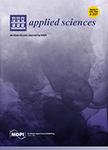版权所有:内蒙古大学图书馆 技术提供:维普资讯• 智图
内蒙古自治区呼和浩特市赛罕区大学西街235号 邮编: 010021

作者机构:Cent South Univ Sch Automat Changsha 410083 Peoples R China Cent South Univ Sch Comp Sci & Engn Changsha 410075 Peoples R China Cent South Univ Sch Elect Informat Changsha 410075 Peoples R China
出 版 物:《APPLIED SCIENCES-BASEL》 (Appl. Sci.)
年 卷 期:2025年第15卷第1期
核心收录:
主 题:energy management strategy electrically driven legged robot hybrid energy storage system learning-based model predictive control
摘 要:Electrically driven legged robots have become popular in recent years. However, the development of reliable energy supply systems and effective energy management strategies for legged robots with dramatically varying power requirements still needs to be explored. This article proposes a learning-based model predictive control (MPC) energy management strategy for legged robots with battery-supercapacitor hybrid energy storage systems containing a power prediction unit and an MPC with learning-based adaptive weights. Firstly, the mathematical model of the legged robot is established, and a dual-layer long short-term memory network is constructed to predict the load power demand, providing the model and measurable disturbance for the MPC. Secondly, a multi-objective optimization objective function is established for the MPC-based energy management strategy. Three normalized terms, battery capacity loss, battery power fluctuation, and supercapacitor state-of-charge regulation, are balanced in the objective function. Finally, a deep learning algorithm is proposed to adaptively adjust the three weighting factors to meet the diverse operation conditions. Hardware-in-the-loop experimental implementations demonstrate that the proposed method can improve the kinematic performance of the legged robot by maintaining the supercapacitor state of charge at a relatively high level and reducing the battery capacity loss by 12.7% compared with the conventional MPC method.